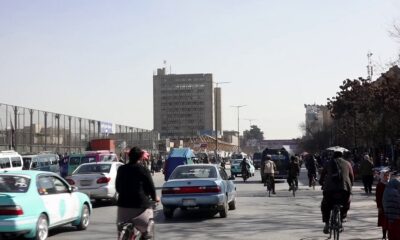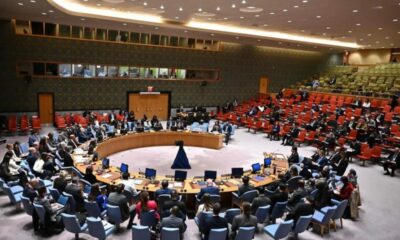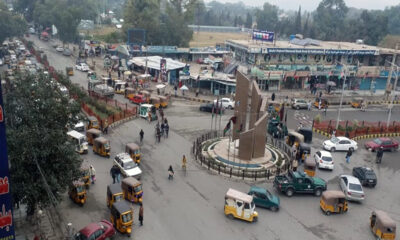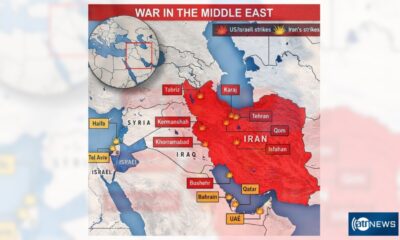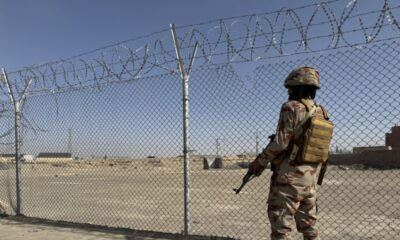Business
Afghanistan’s GDP to expand by 3% in 2021: ADB

The Asian Development Bank (ADB) forecasts that Afghanistan’s gross domestic product GDP growth will increase by 3% in 2021 and 4% in 2022 after the normalization of business activity and market sentiment.
In its Asian Development Outlook (ADO) 2021 released on Wednesday, the ADB stated that Afghanistan’s economic growth is expected to recover this year and accelerate next year after a sharp decline in 2020 from the coronavirus disease (COVID-19) pandemic and continued violence and instability.
“Afghanistan’s economy experienced unprecedented disruption in 2020 due to COVID-19 pandemic, political instability and continued violence, which cut remittances, trade, and revenue,” said ADB Country Director for Afghanistan Narendra Singru.
“With a successful COVID-19 vaccine rollout and post-pandemic recovery, the country should be on track to achieve economic growth this year and in 2022 as business activity and market sentiment normalize,” Singru said.
According to the report, inflation more than doubled from 2.3% in 2019 to 5.6% in 2020 driven by higher food prices. Food price inflation in 2020 was estimated at 10% with the highest spike recorded in April when border closure and panic buying propelled it to 16.6%. Inflation is projected to moderate to 5.0% in 2021 and 4.0% in 2022 as food supplies improve.
However, risks remain, including implementing vaccinations in remote and insecure areas, conflict, criminality, corruption, political instability, and broader social fragility. If unaddressed, these could weigh heavily on the economy and impede recovery.
“Supporting the recovery of micro, small, and medium-sized enterprises (MSMEs) hard hit by the pandemic is pivotal to safeguarding workers’ incomes and livelihoods, according to the report. Before the pandemic, MSMEs were estimated to provide nearly 1.6 million service and industry jobs. The government approved a 2-year support package worth $295 million in October 2020 to improve business conditions and implemented countercyclical measures that include support for MSMEs,” the report read.
The ADB suggests that Afghanistan should facilitate MSME access to markets by developing infrastructure, improving security, combating corruption, simplifying regulation, strengthening property rights and contract enforcement, and promoting innovation and better labor skills in order to improve the business environment.
“Increasing access to credit and further expanding the formal bank sector is also crucial,” the organization said.
“ADB is committed to achieving a prosperous, inclusive, resilient, and sustainable Asia and the Pacific while sustaining its efforts to eradicate extreme poverty. Established in 1966, it is owned by 68 members—49 from the region,” the report concluded.
Business
Afghanistan and Uzbekistan emphasize expanding economic and trade cooperation
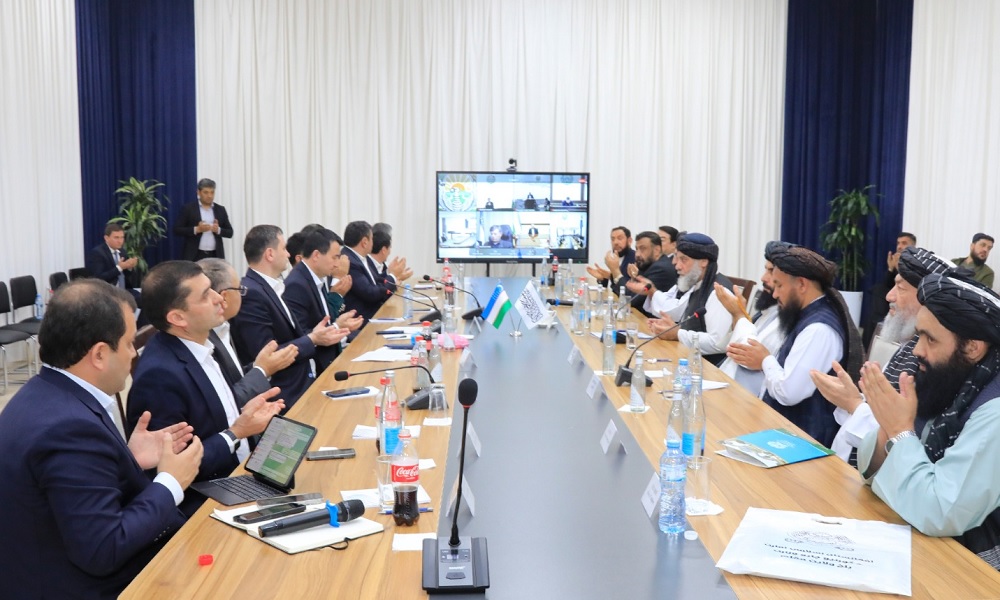
Nooruddin Azizi, Minister of Industry and Commerce of the Islamic Emirate of Afghanistan (IEA), during his official visit to Termez, Uzbekistan, met with Jamshid Khodjayev, Deputy Prime Minister of Uzbekistan, to discuss expanding bilateral economic ties.
The meeting was attended by Mohammad Yousuf Wafa, Governor of Balkh, Abdul Ghaffar Bahr, Afghan Ambassador to Tashkent, and several representatives from Afghanistan’s private sector. The two sides held extensive talks on enhancing trade relations, increasing trade volumes, expanding transit routes, removing trade barriers, and promoting joint economic initiatives.
Minister Azizi emphasized the growing partnership between the two countries and stressed the need to accelerate the implementation of agreements while providing greater support and facilities for traders and investors.
Deputy Prime Minister Khodjayev welcomed the Afghan delegation, highlighting the interest of Uzbek investors in sectors such as agriculture, mining, transport, infrastructure, and health. He also announced Uzbekistan’s readiness to deploy technical teams to support the execution of joint projects.
Azizi expressed Afghanistan’s full commitment to cooperating on shared economic initiatives, while representatives from the Afghan private sector shared their proposals, emphasizing the importance of closer collaboration between the two countries’ private sectors.
The meeting also included participation from Uzbekistan’s Ministers of Transport, Agriculture, Energy, and Health, the First Deputy Minister of Foreign Affairs, and several provincial governors, who joined online.
Business
Rail transport from Iran to Afghanistan surges 17-fold
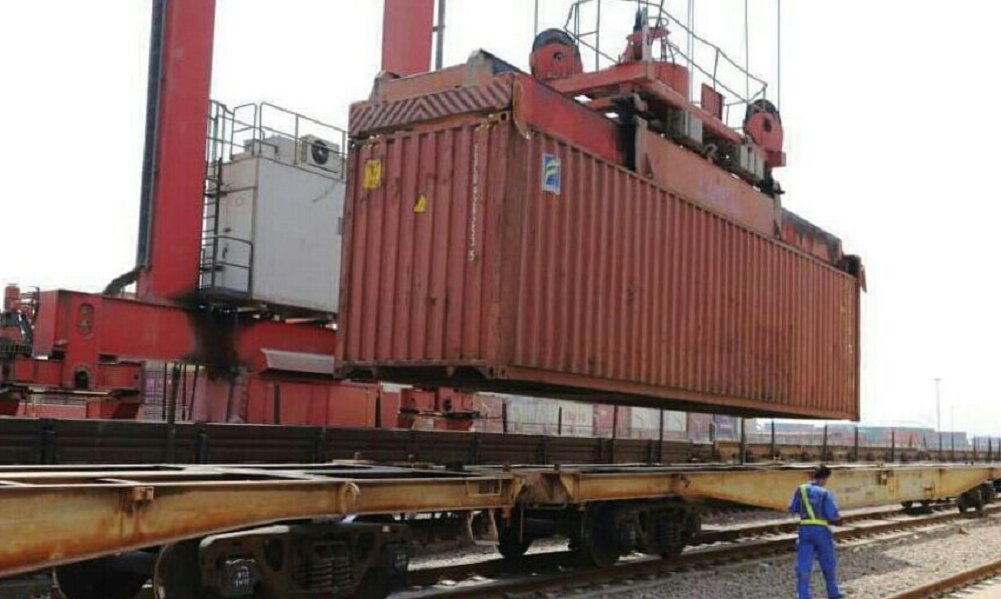
Rail freight between Iran and Afghanistan has increased 17-fold during the 1404 solar year, underscoring a sharp rise in cross-border trade and transit activity, Iranian officials say.
Shahryar Naqizada, Director General of Foreign Trade for Iran’s Railway, told state news agency IRNA that between March 2025 and February 2026, some 650,000 tons of goods were transported to Afghanistan by rail.
Of that total, approximately 150,000 tons consisted of transit cargo — goods originating in third countries and routed through Iran before entering Afghanistan.
The surge reflects Tehran’s broader push to strengthen regional connectivity and position itself as a key trade corridor linking Central Asia to international markets.
Rail links between the two neighbors have become increasingly important as Afghanistan seeks alternative trade routes and more cost-effective import channels.
A major driver of this growth is the Khaf–Herat railway line, which connects northeastern Iran to western Afghanistan and has gradually expanded commercial operations in recent years.
The line reduces transport costs and transit times compared to road freight, while also improving reliability for bulk commodities such as construction materials, fuel, food products, and industrial goods.
Looking ahead, Naqizada said Iran aims to move two million tons of cargo through the Shamtigh border crossing in the 1405 solar year (2026–2027), calling the target achievable given current momentum.
The increase in rail shipments comes amid expanding economic engagement between the two countries, including discussions on infrastructure investment, transit cooperation, and agricultural trade.
Analysts say improved rail connectivity could further integrate Afghanistan into regional supply chains, particularly if complementary customs and logistics systems are strengthened on both sides of the border.
Business
Iran looks to expand economic ties with Afghanistan through contract farming

Iran is exploring ways to deepen economic engagement with Afghanistan, focusing on contract farming and trade, as discussions continue over potential formal recognition of the Islamic Emirate of Afghanistan (IEA) government, a senior Iranian business official said.
According to Iran News Daily, Mahmoud Siadat, head of the Iran–Afghanistan Joint Chamber of Commerce, said recognition of the Islamic Emirate of Afghanistan would boost investor confidence and facilitate long-term projects, including rail links connecting Iran to China via Afghanistan.
While no formal recognition has been confirmed, Siadat noted that bilateral relations have steadily improved.
Iran exports over $3 billion in goods and services annually to Afghanistan, including technical and engineering services, while Afghan exports to Iran remain limited at around $100 million.
Siadat highlighted agriculture as a key growth area, with plans for contract farming where Iranian firms would provide technology, expertise, and guaranteed purchase agreements for Afghan crops and livestock.
“Instead of importing legumes from Canada, we can source them from Afghanistan,” he said, noting that structured agricultural cooperation could benefit both countries.
Remittances from Afghans working in Iran, he added, further underline the strong economic ties between the neighbors.
Even without formal recognition, trade remains robust, but Siadat emphasized that a clear diplomatic framework could unlock more investment and strategic projects.
-
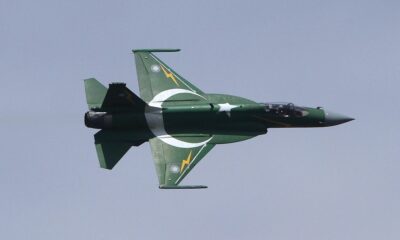
 Latest News1 day ago
Latest News1 day agoPakistani military jet downed in Afghanistan’s Jalalabad, pilot captured alive
-

 Latest News2 days ago
Latest News2 days agoAfghan Air Force conducts airstrikes in Islamabad, other cities
-

 Latest News2 days ago
Latest News2 days agoIEA: Special circle in Pakistan has launched mission to destabilize region
-

 Sport5 days ago
Sport5 days agoRichard Pybus appointed as head coach of Afghanistan’s national cricket team
-

 World3 days ago
World3 days agoIndia’s Modi backs Israel in address at Israeli parliament
-
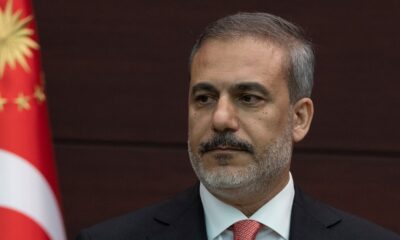
 Latest News2 days ago
Latest News2 days agoTurkey launches initiative to diffuse Afghanistan-Pakistan tension
-

 Regional3 days ago
Regional3 days agoNarendra Modi holds high-level talks after historic address to Knesset
-

 Latest News2 days ago
Latest News2 days agoAfghans say they are united against Pakistan aggression


